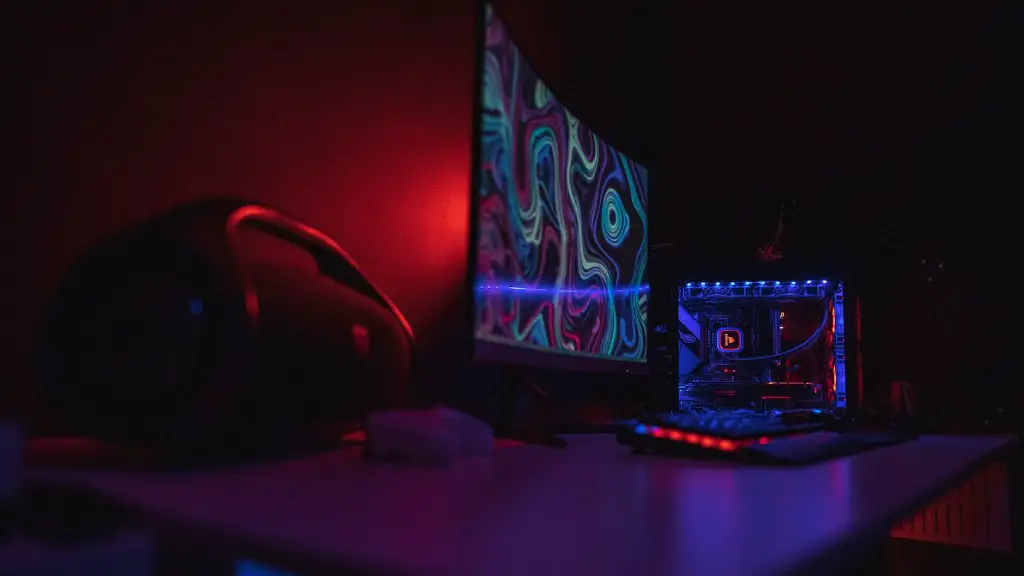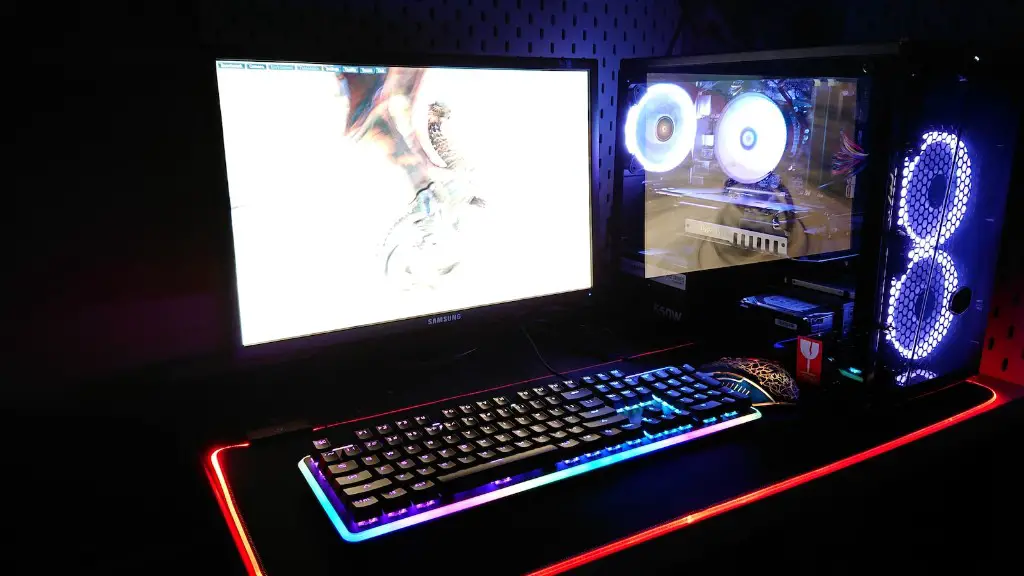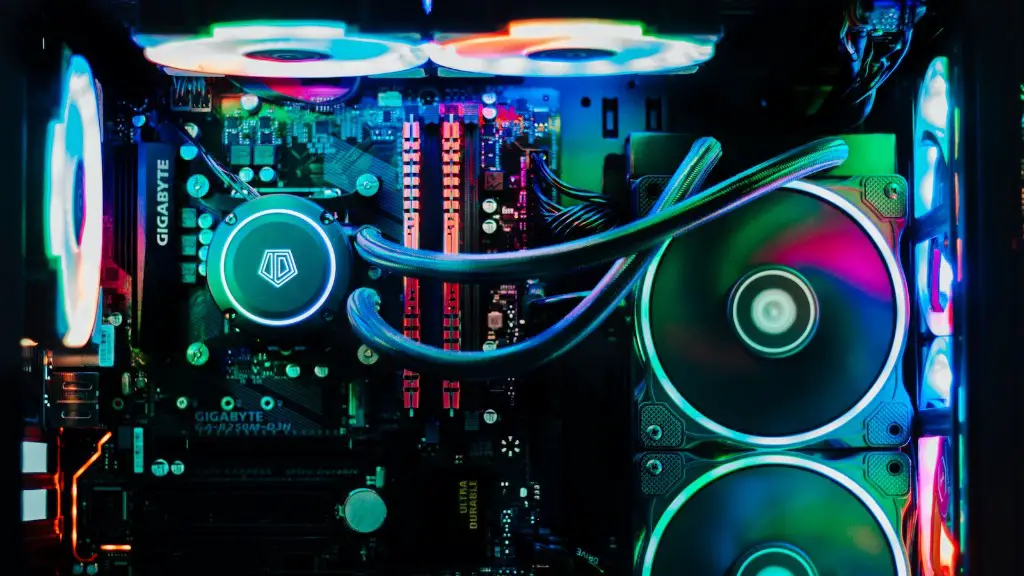Gaming PCs are designed to be powerful and reliable, but unfortunately they sometimes let gamers down with sudden shutdowns. These PC restarts can be caused by a range of different issues, many of which require some careful diagnostics and attentive troubleshooting to fix. In this article, we explore why a gaming PC might be shutting off and how to go about resolving each possibility.
Hardware
One of the most common causes of a gaming PC shut down is hardware incompatibility. Even if users have bought all the necessary hardware for their custom-built PC, it’s possible some of the components may not be compatible with each other. This issue can be rectified by manually diagnosing the error and replacing the incompatible hardware.
Memory problems are one hardware issue that can cause a PC to shut off unexpectedly. RAM modules that don’t fit the user’s system are a common problem, as are conflicting RAM speeds on dual channel systems. Crucial’s System Scanner tool can help to identify which components are incompatible and need replacing.
A power supply is another possible cause of a gaming PC shut down. Low-quality or overloaded power supplies can lead to frequent restart cycles. If a power supply is inadequate for the PC’s usage, it can cause the PC to reboot itself in an attempt to cool down the system. Upgrading to a better quality power supply can help to resolve this issue.
The PC’s case can also be a cause of restarts. If the PC case is too small, poor ventilation or other case-related issues can lead to overheating and cause a restart. Choosing a case that matches the size and features of the PC can help to prevent these restarts.
Finally, hardware conflicts can also result in restarts. Conflicting and incompatible components can cause the system to shut down in an effort to prevent damage from occurring. Removing and replacing the hardware that is causing the problem can help to resolve this issue.
Software
Software is another common cause of gaming PC shut downs. Outdated drivers can often lead to system instability and restarts. Keeping drivers up to date is important for maintaining system performance and stability, and can help to prevent random restarts. It can be helpful to keep a backup of drivers in case the driver update fails or causes other system issues.
Another potential software issue is Windows errors. Windows errors can be caused by a variety of factors, such as a bad system update, a missed system update, or a corrupted registry. Generally speaking, a system reinstall or a clean install of Windows can fix these errors. However, diagnosing the cause of the error can also help to prevent similar issues in the future.
Malicious software can also cause restarts. Viruses, malware, and other malicious programs can damage the system and cause restarts. Installing reliable antivirus and anti-malware programs can help to detect and remove malicious software.
Software can also cause issues when users overclock their PCs. Overclocking can help to boost system performance, but if the settings are too aggressive, this can cause the system to crash. Deactivating the overclocking settings and resetting to default can help to prevent system crashes.
Finally, overclocking can also cause system restarts. When overclocking, users can push the processor past its capability and cause the system to restart in an attempt to cool down the components. Setting the processor at a lower speed can resolve this issue, as can improving the system’s cooling.
Heat
Heat is another potential cause of restarts. Gaming PCs can generate a lot of heat, especially when playing demanding games. If the system’s cooling isn’t up to the task, it can cause the system to shut down in order to cool itself down. Keeping the system clean and dust-free, as well as ensuring that the cooling fans and other components are working properly, can help to prevent overheating-related restarts.
Overclocking can also lead to overheating, as discussed above. Using excessive system settings can push the components beyond their intended capabilities, causing too much heat and system restarts. Setting the processor at a lower speed and improving the system’s cooling can help to reduce the temperature and resolve this issue.
Finally, users may want to monitor the system’s temperature while gaming. There are many programs available that can help users to monitor their system’s temperature, such as HWMonitor. Monitoring the temperature can help to identify potential issues and make it easier to troubleshoot any associated problems.
Power
Power fluctuations and surges can also lead to system restarts. Quality power supplies, surge protectors, and Uninterruptible Power Supplies (UPSs) are important for protecting hardware from power-related issues. Using a surge protector, as well as a quality Uninterruptible Power Supply (UPS) during a power outage, can help to prevent system restarts.
Power outages can also lead to restarts. Even when using a UPS, sudden power outages and power fluctuations can still cause a system restart. Installing a generator and investing in quality power backup can help to ensure that the system is powered and insulated from sudden power fluctuations.
Finally, PC wattage and usage can also cause restarts. A PC with a low-powered supply may be unable to handle the usage of multiple components, causing the system to shut itself down. Upgrading the power supply to a higher wattage can help to ensure that the PC is able to handle the usage of its components.
Environmental Factors
External environmental factors can also lead to PC restarts. Poor ventilation can lead to overheating and cause the system to shut itself down. It’s important that the system is in an adequately ventilated space, as well as having enough clearance between the PC and other objects. If the environment is too dusty, fans can become clogged, which can also cause restarts.
External factors such as physical vibration can also damage components and cause the system to restart. Vibration can damage the internal components of a PC, so it’s important that their gaming PC is placed on a flat, stable surface at all times. Placing the PC on a sturdy desk, rather than a wobbly surface, can help to prevent any accidental vibration damage.
Finally, liquid spills can also cause PC restarts. If the PC is exposed to liquids such as water or soda, this can cause a short-circuit and cause the system to shut down. Proper liquid cooling setups help to keep the components of the PC safe from liquid damage. Though liquid cooling is not necessary, it’s a good investment for those who want to ensure that their system is kept safe from liquid spills.
Conclusion
Gaming PCs can be subject to various issues that lead to unexpected restarts. The exact cause can be difficult to diagnose, and so it’s important for users to be aware of the potential hardware and software issues that can lead to restarts. Fortunately, most of these issues can be prevented and fixed with relative ease, allowing gamers to enjoy uninterrupted sessions without fear of restarts.




